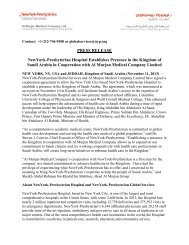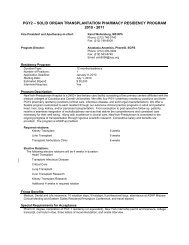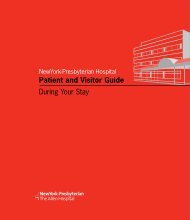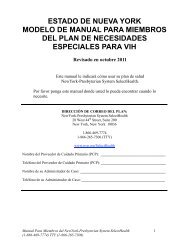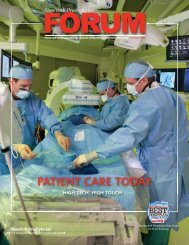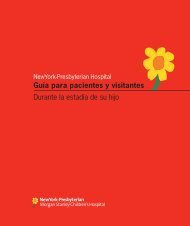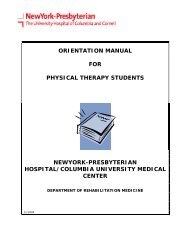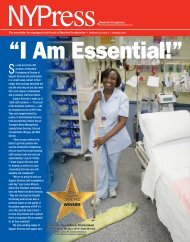Patient and Visitor Guide - New York Presbyterian Hospital
Patient and Visitor Guide - New York Presbyterian Hospital
Patient and Visitor Guide - New York Presbyterian Hospital
Create successful ePaper yourself
Turn your PDF publications into a flip-book with our unique Google optimized e-Paper software.
<strong>Patient</strong> Rights <strong>and</strong> Responsibilities_ 31<br />
<strong>Patient</strong> Rights <strong>and</strong> Responsibilities<br />
Your Rights<br />
You have certain rights <strong>and</strong> protections as a patient guaranteed by state <strong>and</strong> federal laws. These laws<br />
help promote the quality <strong>and</strong> safety of your hospital care. Please review Your Rights as a <strong>Hospital</strong> <strong>Patient</strong> in<br />
<strong>New</strong> <strong>York</strong> State, which can be found in the pocket of this <strong>Guide</strong>. Share it with family <strong>and</strong> friends involved<br />
in your care. If you have a question about your rights, or do not underst<strong>and</strong> something, speak to your<br />
nurse, doctor, social worker, or <strong>Patient</strong> Services Administration representative.<br />
Your Responsibilities<br />
This Statement of <strong>Patient</strong> Responsibilities was designed to demonstrate that mutual respect <strong>and</strong><br />
cooperation are basic to the delivery of quality health care. You are responsible to:<br />
• Provide, to the best of your knowledge, accurate <strong>and</strong> complete information about present complaints,<br />
past illnesses, hospitalizations, medications, <strong>and</strong> other matters relating to your health; <strong>and</strong> provide,<br />
upon admission, a copy of your Health Care Proxy or other advance directives, if available.<br />
• Notify your doctor or nurse if you have recently been taking any of the following: vitamins,<br />
minerals, both prescription <strong>and</strong> non-prescription medications, <strong>and</strong> herbal <strong>and</strong> nutritional supplements.<br />
By letting them know what you are taking, they can take steps to avoid possible problems<br />
with the medications <strong>and</strong> treatments you may be getting during your <strong>Hospital</strong> stay.<br />
• Let your nurse know if food is brought in from the outside for you. We need to see that the food is<br />
stored safely <strong>and</strong> won’t interfere with your special diet or treatment.<br />
• Report any unexpected changes in your condition to the responsible medical care provider.<br />
• Report whether you clearly underst<strong>and</strong> each proposed course of action in your care <strong>and</strong> what is<br />
expected of you.<br />
• Follow the treatment plan recommended by the health care team responsible for your care.<br />
This group may include doctors, nurses, <strong>and</strong> allied health personnel who are carrying out the<br />
coordinated plan of care, implementing your doctor’s orders, <strong>and</strong> enforcing applicable <strong>Hospital</strong><br />
rules <strong>and</strong> regulations.<br />
• Be responsible for your actions if you refuse treatment or do not follow your medical care<br />
provider’s instructions.<br />
• Follow <strong>Hospital</strong> rules <strong>and</strong> regulations affecting patient care <strong>and</strong> conduct.<br />
• Be considerate of the rights of other patients <strong>and</strong> <strong>Hospital</strong> personnel, especially with regard to<br />
minimizing noise, refraining from smoking, <strong>and</strong> assuring the appropriate conduct of your visitors.<br />
• Be respectful of the property of others.<br />
• Assure that the financial obligations for your health care are fulfilled as promptly as possible.



